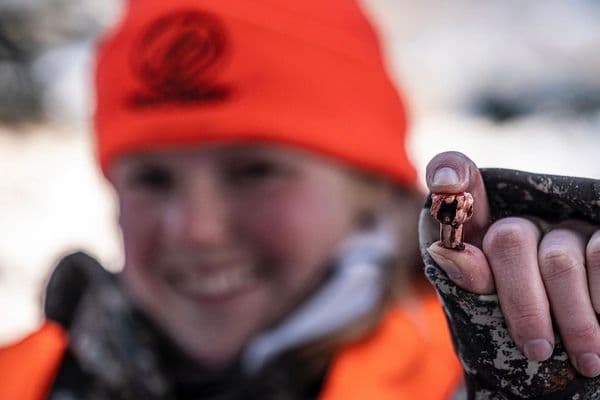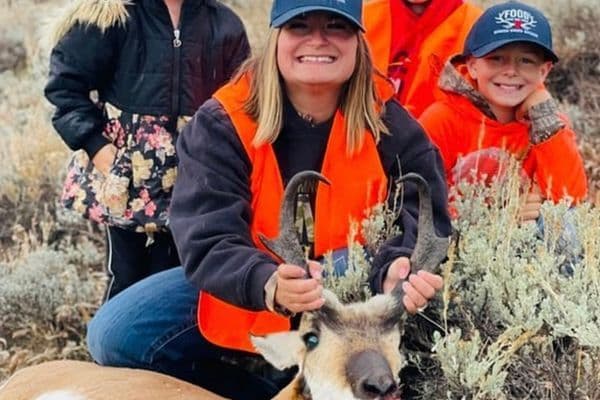.243 vs. 6.5 Creedmoor: Field-Tested Rifle Choices for Smaller-Framed Hunters


Justin Hunold
11/09/2024
The first time I fired a .243, I was a wiry teenager tucked against the edge of a frostbitten hayfield in Upstate New York. The rifle didn’t thump my shoulder, didn’t ring my ears, didn’t rattle my nerves—it just worked. Years later, I sat under the same stand of poplars and watched my niece drop her first whitetail with a 6.5 Creedmoor. Her rifle, a Weatherby Camilla, nestled into her shoulder like it was built just for her—which it was.
When you’re a smaller-framed hunter, rifle choice isn’t just about ballistics. It’s about confidence. It’s about comfort, balance, and the ability to focus on the animal—not the kick. And when it comes to the debate between the .243 Winchester and the 6.5 Creedmoor, it isn’t about which one is "better"—it’s about which one fits your hunt, your terrain, and your style.

Choosing a Rifle: Fit First, Caliber Second
Let’s start where every good deer rifle does: with fit. The best rifle in the world won’t mean much if it doesn’t feel like an extension of your body. That’s why Weatherby’s Camilla and the newer 307 series have earned such a loyal following among smaller-statured hunters.
Camilla: Designed by women, for women, but beloved by all who appreciate a shorter length of pull, a thinner grip, and a lighter, better-balanced carry rifle.
307 Series: Modularity meets ergonomics. Lightweight and highly customizable—ideal for smaller shooters who want options without sacrificing shootability.
Pair either platform with a soft-shooting caliber and you’ve got a rifle that disappears into your shoulder but still hits hard in the field.
.243 Winchester: The Gentle Slayer with Surprising Range
Why I carry it: When hunting tight timber or taking new hunters afield, the .243 shines. Its light recoil allows for quick follow-ups and calm trigger control. It’s not a shoulder-bruiser; it’s a deer-dropper. But don’t let its mild manners fool you—this caliber is a crossover powerhouse.
Ideal terrain: Woods, brushy creek bottoms, food plots inside 200 yards, open country when paired with the right load.
Versatility: The .243 isn’t just a deer cartridge. It’s a dynamo for varmints, antelope, and even black bear with proper bullet selection. For prairie dogs and coyotes, try a light pill in a V-Max. For deer and pronghorn, a 95-grain Nosler Ballistic Tip or Hornady SST does wonders. For heavier game like black bear, consider a 100-grain Partition or a bonded soft point like the Federal Fusion.
Field lesson: My nephew, age 13, took a doe cleanly with a .243 from a box blind in thick hardwoods. One shot through the boiler room, and she was down in seconds. Minimal recoil. Maximum confidence.
Ballistics Snapshot:
- Recoil: Very light
- Range: Effective inside 300 yards, capable further with the right load
- Bullet weight: Typically 58–100 grains
- Best use: Varmints to black bear, especially effective on deer and pronghorn
6.5 Creedmoor: The Flat-Shooting Overachiever with Big-Game Credentials
Why I carry it: Open-country hunts demand a bit more range, and the 6.5 delivers. It handles wind better, carries energy downrange, and still kicks like a mule with manners. And because it shoots long-for-caliber bullets with excellent ballistic coefficients, it’s a dream for precision.
Ideal terrain: Cut crop fields, open prairie, foothills, mountainous elk country—anywhere you might stretch a shot to 300+ yards.
Versatility: The 6.5 Creedmoor is not just for whitetails. Mule deer, antelope, elk, and even moose have fallen to this cartridge with the right bullet. In fact, the 6.5 lineage traces back to the 6.5x55 Swedish Mauser—a round long used in Europe for moose hunting. Modern bullets like the 143-grain Hornady ELD-X, 140-grain Nosler AccuBond, and 130-grain Barnes TTSX make the Creedmoor fully capable of ethically taking elk-sized game.
Field lesson: South Dakota mule deer camp, shooting prone across a harvested wheat field. My niece dropped a buck at 285 yards. The bullet flew flat, the recoil was tame, and the shot was perfect.
Ballistics Snapshot:
- Recoil: Mild, slightly more than .243
- Range: Effective to 500+ yards
- Bullet weight: 120–147 grains
- Best use: Deer to moose, especially excels at longer ranges and windy conditions
Bullet Choice is Critical: For each species:
- Whitetail/Pronghorn: Hornady SST or Nosler Ballistic Tip
- Mule Deer/Elk: Nosler AccuBond, Swift Scirocco II
- Moose: Barnes TTSX, Federal Terminal Ascent
Scope Pairing: Clarity, Not Complexity
Whether you’re shooting .243 or 6.5 Creedmoor, a solid scope completes the package. Keep it simple, but make it durable and sharp—especially in low light.
My pick: Athlon Optics offers an outstanding line of scopes that hit the sweet spot between price and performance. The Talos and Argos BTR series provide dependable performance, crisp glass, and rugged build quality that stands up to field abuse.
What to look for:
- Magnification: 3–9x or 4–12x covers most deer shots.
- Objective: 40–44mm for light-gathering without bulk.
- Reticle: Simple duplex or BDC if you're stretching the Creedmoor.
Check out Athlon Optics to find a setup that suits your needs and budget without compromising performance.
Other Caliber Contenders
If neither .243 nor 6.5 Creedmoor feels quite right, these rounds offer similar comfort with different personalities:
- .25-06 Remington: Flat shooter with more zip than a .243 but manageable recoil.
- 7mm-08 Remington: Ballistic sweet spot for deer, especially good for longer shots.
- .308 Winchester: More thump, but still reasonable with modern stock designs and brakes.
Each has its place, but the .243 and 6.5 Creedmoor remain my go-to pairing for new or smaller-framed hunters because they work in the real world—quietly, cleanly, and consistently.

Final Verdict: .243 vs. 6.5 Creedmoor
- Choose .243 Winchester if you prioritize comfort, versatility across species, and recoil management—from prairie dogs to pronghorn, whitetails to black bears.
- Choose 6.5 Creedmoor if your hunts take you across wind-blown fields, mountainous ridges, or after game that can weigh several hundred pounds. Its roots in European moose camps prove its pedigree.
At the end of the day, pick the rifle that fits you, and the caliber that fits your style of hunting. Then practice until that rifle feels like an old friend. Because the best shot isn’t the one with the flattest trajectory or biggest boom—it’s the one that lands where it’s supposed to, every single time.